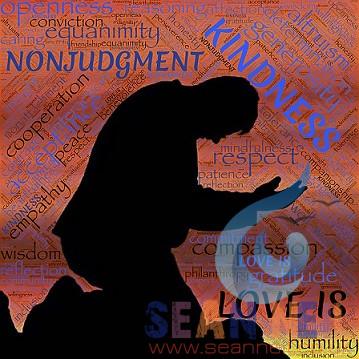A Guide to Understanding and Embracing Both
The relationship between religion and spirituality is complex and varies from person to person. Some people find solace and connection with their spirituality through organized religion, while others find that spirituality is a personal experience separate from religious beliefs or institutions. Therefore, it is fair to say that one does not necessarily need to be religious to be spiritual.
Religion is generally defined as a system of beliefs, practices, rituals, and values shared by a community of people who identify with a particular tradition that is linked to faith. This structure can provide guidance, a sense of community, and a framework for understanding the world and one’s place in it. For some people, religious practices such as prayer, meditation, or participation in religious ceremonies can foster a deep sense of spirituality. Additionally, religious texts often contain moral teachings and ideas about the purpose of life, which can give people a sense of direction and meaning.
Spirituality, on the other hand, can be seen as a more personal, intuitive, and individualistic experience. It encompasses a person’s search for meaning, purpose, and connection to something greater than themselves. Spirituality often addresses existential questions, the exploration of values, and the search for inner peace, love, or transcendence. It can also involve self-reflection, mindfulness, and the cultivation of virtues such as compassion, gratitude, or forgiveness. While spiritual experiences can occur within a religious context, they can also arise outside of organized religion through nature, art, relationships, or personal introspection.
It is important to recognize that spirituality is fundamentally subjective and fluid. Different people may have varying interpretations of spirituality, influenced by their cultural backgrounds, personal experiences, and philosophical inclinations. Some people may find fulfilment in religious practices and texts, while others may find it in meditation, yoga, or other contemplative practices. Additionally, some people may identify as spiritual but not religious, which means that they hold deep spiritual beliefs and values but choose not to affiliate themselves with a specific institutionalized religion.
Ultimately, the need for religion as a means of spiritual fulfilment varies from person to person. Some people may find comfort, guidance, and community within religious institutions, while others may find spirituality in more open-ended and individualistic practices. It is a personal journey that depends on one’s beliefs, experiences, and what resonates with their innermost self. Therefore, one does not necessarily have to be religious to be spiritual, as spirituality can be found and cultivated through various means, including within or outside the framework of organized religion.

